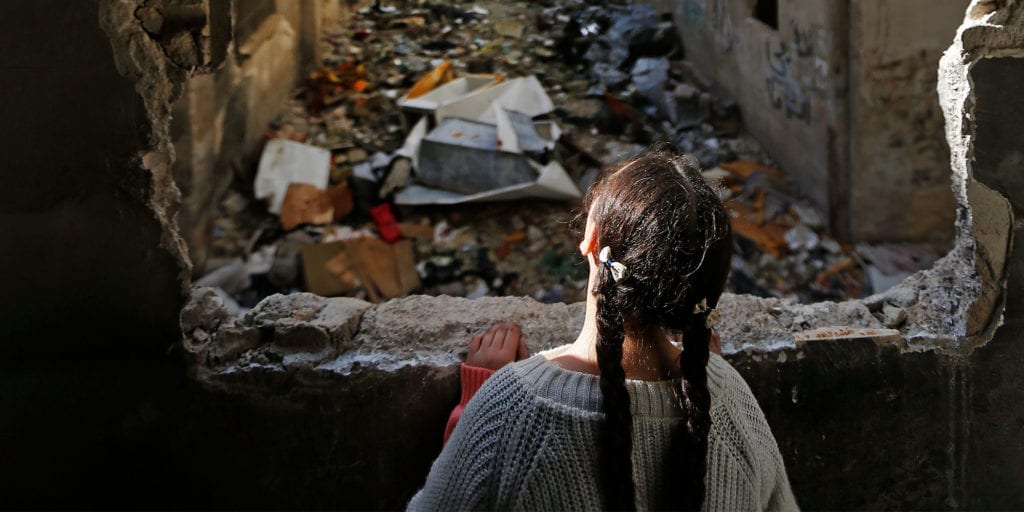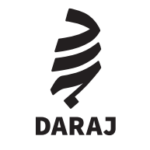This should come as no surprise, that in Syria there is no freedom of press. If you criticize any authority, minister or official you may be arrested or taken in for interrogation. Even a Facebook post that criticizes or makes fun of an official may send its author behind bars. It gets uglier when the writer is a journalist.
The only choice for a journalist, whether he lives in Syria or abroad, and cares for his family in Syria, is to write under a pseudonym. This means that no one ever recognizes the author of the article, nor his gender or age. The writer may be a male journalist writing under the name of a girl or vice versa. He may be in his thirties or fifties. It is not difficult to recognize Syrian journalists with pseudonyms. You can easily search the author’s name to find out that there is no photo of him nor an account on social media. Yet he certainly exists somewhere in the world.
The Most Terrifying Scene in Syria
It would have seemed an ordinary day when I went to buy some vegetables from a nearby street market, had it not been for the unpleasant clamor that made me freeze. Syrian security forces in plain clothes were taking a guy away, having cuffed his hands behind his back. They forced him to bend his head, while rushing to put him in a van parked up the street. This is truly the most terrifying scene in Syria.
I panicked and thought of going back home before they could find out about me. Maybe everyone feels the same way looking at these scenes, but my fear was greater because the security forces had a reason to arrest me. I am a journalist. I write against the Syrian regime on a media website under a pseudonym. They did not come after me, and if they had wanted to arrest me, they would have come to my house or one of the checkpoints where personal IDs are checked.
The first question a journalist asks himself before writing against the Syrian regime under a pseudonym is: “Is it really worth the risk?”
I asked a vendor who saw the incident in a faked calm: “What is the matter?” He replied confidently: “Security forces came and arrested some guy.” I asked him in the same tone: “Why?” He replied: “I haven’t a clue what he has done.” I went back home and the vendor’s words kept resonating in my mind: “I haven’t a clue?” What have Syrians done to be arrested and to taste the bitterness of such terror every day and at every checkpoint? What have Syrians done to hear phrases like: ‘they put him in a furnace alive;’ ‘burned him alive;’ ‘arrested him;’ ‘the walls have ears’? These are phrases that send a shiver down every Syrian’s spine. Metaphors that make hearts beat quicker, metaphors that brings to mind horrific images of iron rods, torture, the execution wheel, and death in dark dungeons.
The thought of being arrested haunted me all day. I was scared and my heart felt torn apart. It made me feel unsafe. I rushed to my computer to make sure that I had deleted all materials after sending them and logged out of my email. I thought about all the journalists like me, the fear we feel when we write under a pseudonym and send materials from a fake email. No place for risks. Journalists writing under pseudonyms avoid speaking with their editors on social media. There is no guarantee that the Syrian security forces could not reach them. The stories spread among journalists about friends who were arrested by the security forces. When they denied the charges the interrogators would show them screenshots to confirm conversations they had. It seems better to avoid such communication.

The Freedom of Pseudonyms
A few years ago, the pseudonym was not an option. I needed to pluck up my courage to start and find a director I could trust. Indeed, there was no easy start, and because I knew what detention was like, the horror was far greater. The image of my uncle after his release was imprinted in my memory. I remember his fingernails eroded by torture, his slim body after losing some 50 kilos, and his body whipped by lashes.
His image is engraved in my mind: shackled, with a beard that grew long after nearly a year of detention, and a face so pale and emaciated that it was difficult to recognize him. I could not forget the torture stories he told me. With each new article I wrote, I imagined him hanging upside down from the ceiling, being kicked, being allowed to enter the bathroom for one minute, taking a tile to sit on and, when sleeping, half the detainees standing up so that the other half could sleep, drenching his head in water, being placed on the torture wheel, being insulted and security personnel threatening to rape his sisters. All of these horrific images are strongly conjured up with each article, with my uncle’s voice trembling in the background.
The question “Is it really worth the risk?” becomes an answer in itself. Yes, it is worth the risk. To discover your freedom above all, and break the shackles of the boundaries that the regime has drawn for you since you were born. It is the answer to many years of dictatorship, torture, murder, and displacement.
The first question a journalist asks himself before writing against the Syrian regime under a pseudonym is: “Is it really worth the risk?” The risk here means the torture my uncle has experienced. It may also mean rape for female journalists in detention camps, threats and harm to family members, and even death. All these ideas turn inside my head at the mere thought of writing. With time I became less fearful, yet anxiety and caution will always accompany me and any journalist who writes under a pseudonym. The question “Is it really worth the risk?” will return with every piece of news about the arrest of a Syrian journalist or the death of a detainee under torture.
What really concerns me most when writing under a pseudonym is the ghoul of the regime that haunts me, the feeling that I am being monitored, that I am “criticizing” people capable of destroying my life if they wish. The mere thought of writing about an authority that is “immune” makes it a challenge. Sometimes the fear is greater than my ability to write, and other times I have the will and the strength that make the fear monster disappear. The Syrian regime has sowed the seeds of fear in every Syrian, even when being by himself. Each time I raise my voice in opposition to the regime, I feel fear and a strange challenge. After all, no one knows me. But it is a challenge for me alone. Will I ever stop being afraid of the regime between me and myself? And if I were arrested, will I regret it? Is it really worth the risk? But I want to believe that I am free and will one day be able to write using my real name, without being concerned about my family or myself.
The Tools …
The tools for a journalist writing under a pseudonym are weak when standing before the dictatorship: a fake email, a press article you delete from your computer as soon as you send it, and a pseudonym. This is all you got in the face of one of the most authoritarian regimes in the world.
Any Other Tools?
Yes, there are tools that you think will make you feel more secure, such as asking your cousin if he knows people who could save you if you were arrested, just like they had helped your uncle before, in return for a sum of money. And his reply would be: “Yes.” Or you go to a friend who works in military security, and simply ask him: “If I were to be arrested one day, would you be able to help me?” “That depends on the situation, but I think I can,” he would reply. Hence, you give your brother two phone numbers of people, both not quite sure if they can save you, and tell him: “If I ever disappear, call these two numbers.”
I want to be safe. And that is all I have in a country ruled by a dictatorship. When you taste the freedom of writing, it will not be easy to stop. Perhaps I will always have to live in fear. We are generations who grew up without learning anything about politics and regimes. We grew up hearing spine-chilling stories about detainees who spent their lives in prisons, being taken every day to the hanging rope, until the dictator changes his mind, which is the cruelest kind of torture. Every day you are sent to the gallows, sure of death, and then they give you one extra day to live.
However, there is the sweet taste of freedom with every thought and article that is finished. A freedom that I have been afraid to approach for a long time. The freedom to tell the truth about the crimes of the regime. About the hard life of fear and terror the Syrians must taste. These are the much-coveted small victories that every Syrian, who lowers his voice when talking about Bashar al-Assad, the security apparatus and their detention camps, dreams of. These are victories in the form of words. This is how a free man lives: he can say whatever he wants without fear, arrest, or death. Yet, how could this have happened without a pseudonym?
In the end, the question “Is it really worth the risk?” becomes an answer in itself. Yes, it is worth the risk. To discover your freedom above all, and break the shackles of the boundaries that the regime has drawn for you since you were born. It is the answer to many years of dictatorship, torture, murder, and displacement.
Read Also:
No posts






